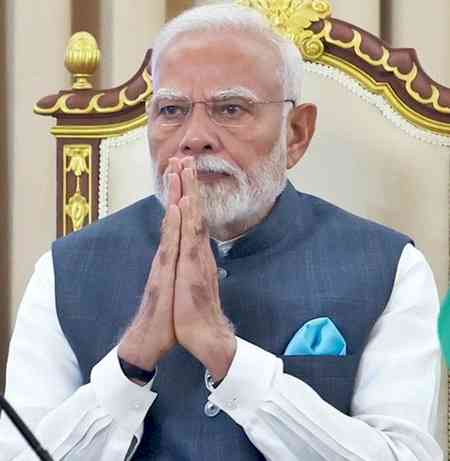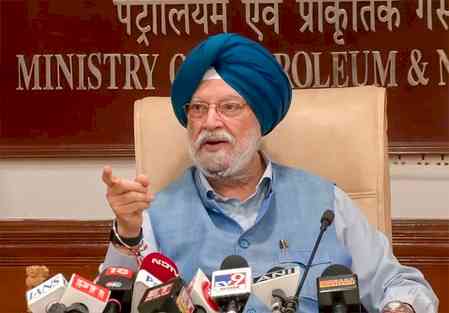Rise in mental health issues, limited access to healthcare, dependency on family key problems for seniors during COVID-19, reveals Antara State of Seniors’ Survey
The ‘State of Seniors’ survey brings out insights into lives, preferences, opinions, and consumer behaviour traits of senior citizens in urban India

New Delhi, July 9, 2022: Antara, an integrated service provider for all senior care needs and a part of the $5-bn Max Group, today, released the findings from the second edition of its survey titled ‘State of Seniors’. The first-of-its-kind survey attempts to bring out insights on the lives, aspirations, preferences, opinions, and consumer behaviour traits of seniors in India.
The findings come at a significant time when India is beginning to experience major demographic shifts with a growing senior population. It is critical to understand that this demographic cohort expects professional and specialised services, in line with their evolving needs, enabling a healthy, happy ageing experience.
The survey was conducted across urban India, with a focus on the North (Delhi-NCR & Jaipur), the West (Mumbai & Pune), and the South (Bengaluru & Hyderabad), with a Random Sampling methodology covering over 2,100 seniors aged 60 and above. The research was conducted in collaboration with Aeon Insights Market Research, a leading research and consulting firm, over a period of two and a half months from March to May end.
Commenting on the survey findings, Rajit Mehta, MD and CEO, Antara said: “The study focuses on understanding the challenges and needs of India’s urban seniors. Today, the seniors in India have evolving needs and aspirations. They want to be active contributors to the economy, lead a life with dignity, and become more independent.
Further, the pandemic has brought about notable shifts in their living patterns and preferences, consumption of technology, along with rise in mental health concerns. The survey will help in gauging the needs and demands of our seniors, and understand the evolution in their choices, concerns, and aspirations.”
70% respondents didn’t have access to proper healthcare
During COVID, 70% seniors didn’t have access to proper healthcare and more than 57% seniors faced mental health issues. This number (81%) was the highest in seniors from Mumbai followed by Bengaluru (70%), Pune (70%), Delhi (64%) and Jaipur (51%). Hyderabad was an exception with 94% of seniors did not face any mental health issue. While fear of getting infected rose to 65%, 58% seniors were scared of social isolation as a result of strict guidelines. Voted by 53%, ill preparedness to fight COVID-19 was one of the top concerns by the elderly.
Avoiding serious ailments, maintaining health are key concerns for seniors
After witnessing the tumultuous second wave, the topmost concern among seniors is how to avoid serious ailments and maintain health, with 50% of them voting for it. About 72% of seniors opted for a self-monitored, balanced diet and 55% relied on home remedies instead of seeking professional medical help. As per the State of Seniors Survey 2020, most seniors were monitoring and taking care of their health through regular physical activity (57%), which has now reduced to only 22%.
Over 59% seniors partially satisfied by Indian Govt’s handling of the pandemic
Commenting on the Indian Government’s management of COVID-19, 59% of the seniors said only some aspects were managed well. About 33% found the self-precautionary measures enlisted by the government inadequate and 8% thought the handling was mismanaged. During the second wave of COVID-19, India not only suffered a great loss of lives but also saw a sharp drop in GDP. In the previous survey, where a significant 32% had applauded the government's effort, the number fell to 0 this year.
Seniors welcomed the idea of independent assisted living facilities
An ageing population in India, along with a growing middle class and enhanced life expectancy, is expected to boost the demand for allied health care services in India. This is expected to gravitate towards wellness and preventive services. As per our survey, majority of the respondents welcomed the idea of an independent assisted living facility. 64% of the respondents like the idea of such a facility, of which 44% of them said they would choose one because it would allow them to live with like-minded people and 24% believed opting for such a facility will ensure that their healthcare needs are covered. It was noted that non-awareness of such existing facilities (37%) and the concept being a novel one less information (30%) are the key hindrances to availing them.
Though seniors like the concept of assisted living, there still are some concerns around it. The biggest issue being lack of awareness and existence of such affordable facilities. Also, the fear of being secluded, especially in lockdown-like situations is another critical area.
As seniors become a larger part of the Indian population, their evolving lifestyle needs offer greater economic opportunity, and India needs to provide tailor-made solutions that cater to their interests. It is essential we understand these needs to appropriately address them. Studies like these can help us understand the new, nuanced senior cohort emerging in India.


 City Air News
City Air News 








